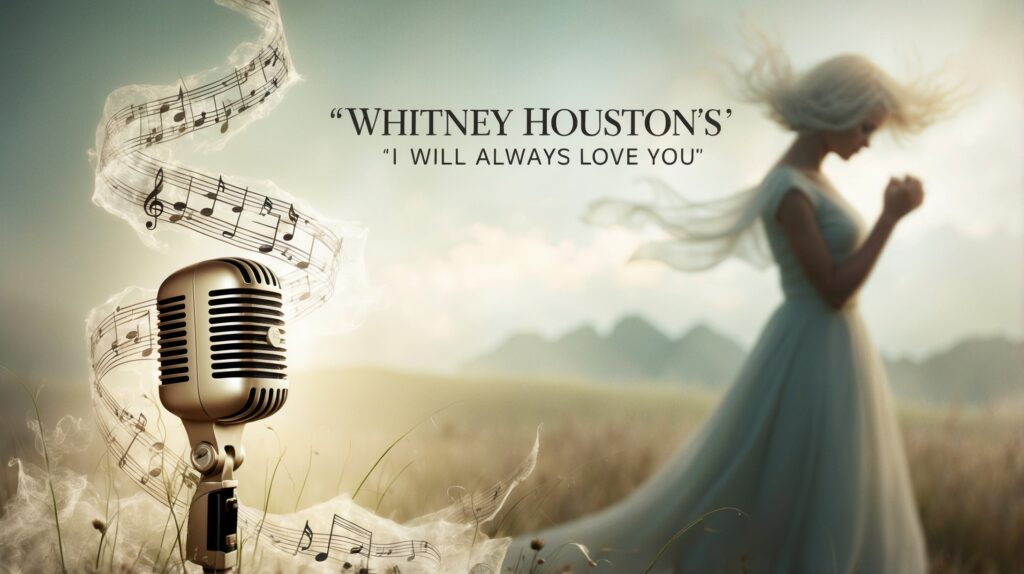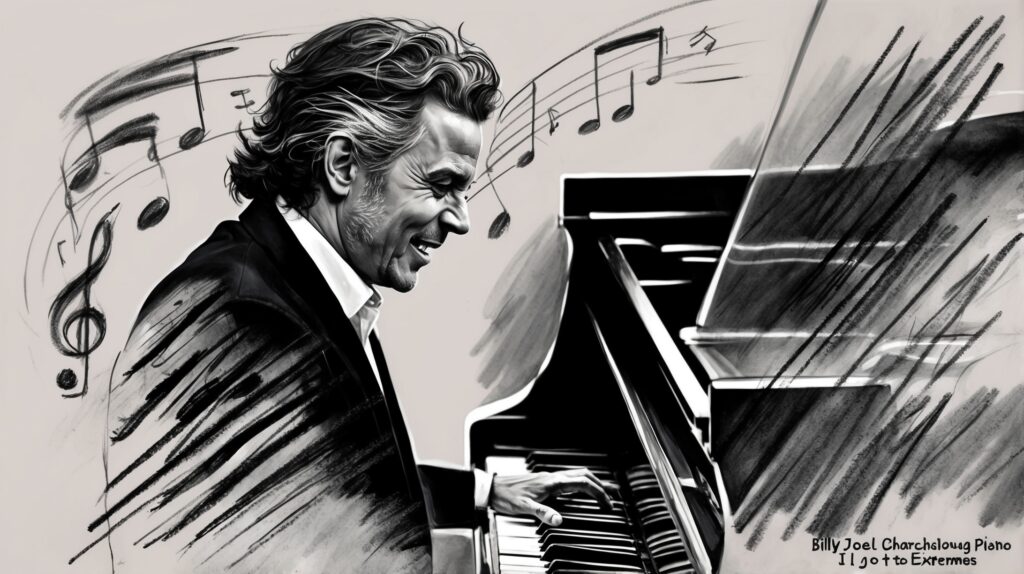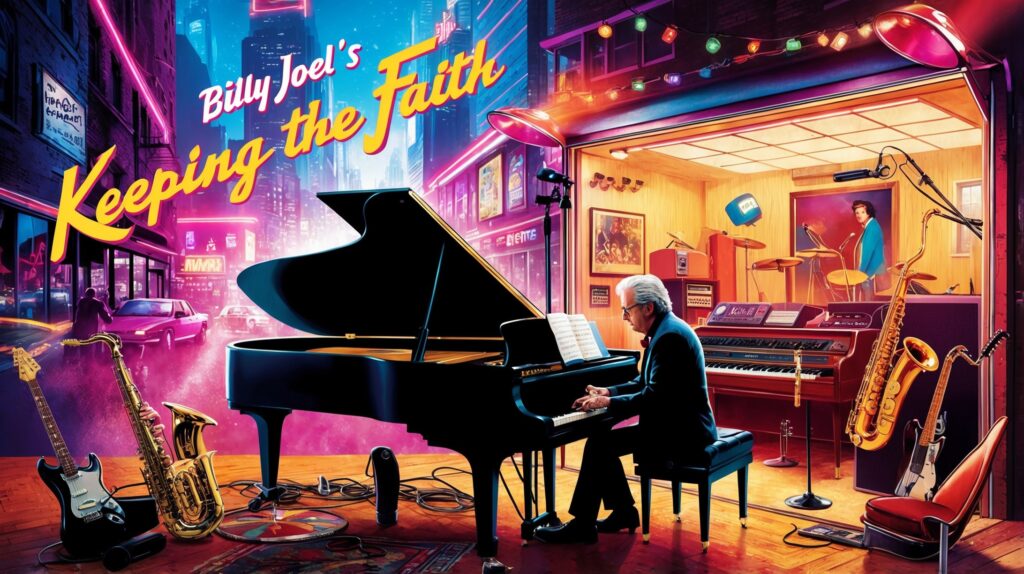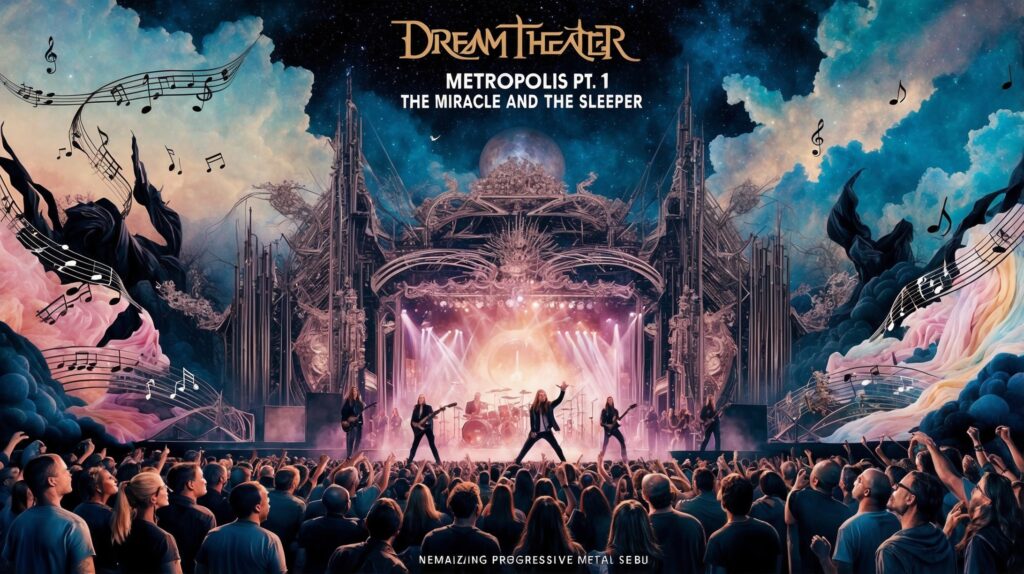The Voice Behind a Timeless Classic: Whitney Houston
Discover the legacy of Whitney Houston, the voice behind “I Will Always Love You,” whose powerful rendition marked a peak in her illustrious career.
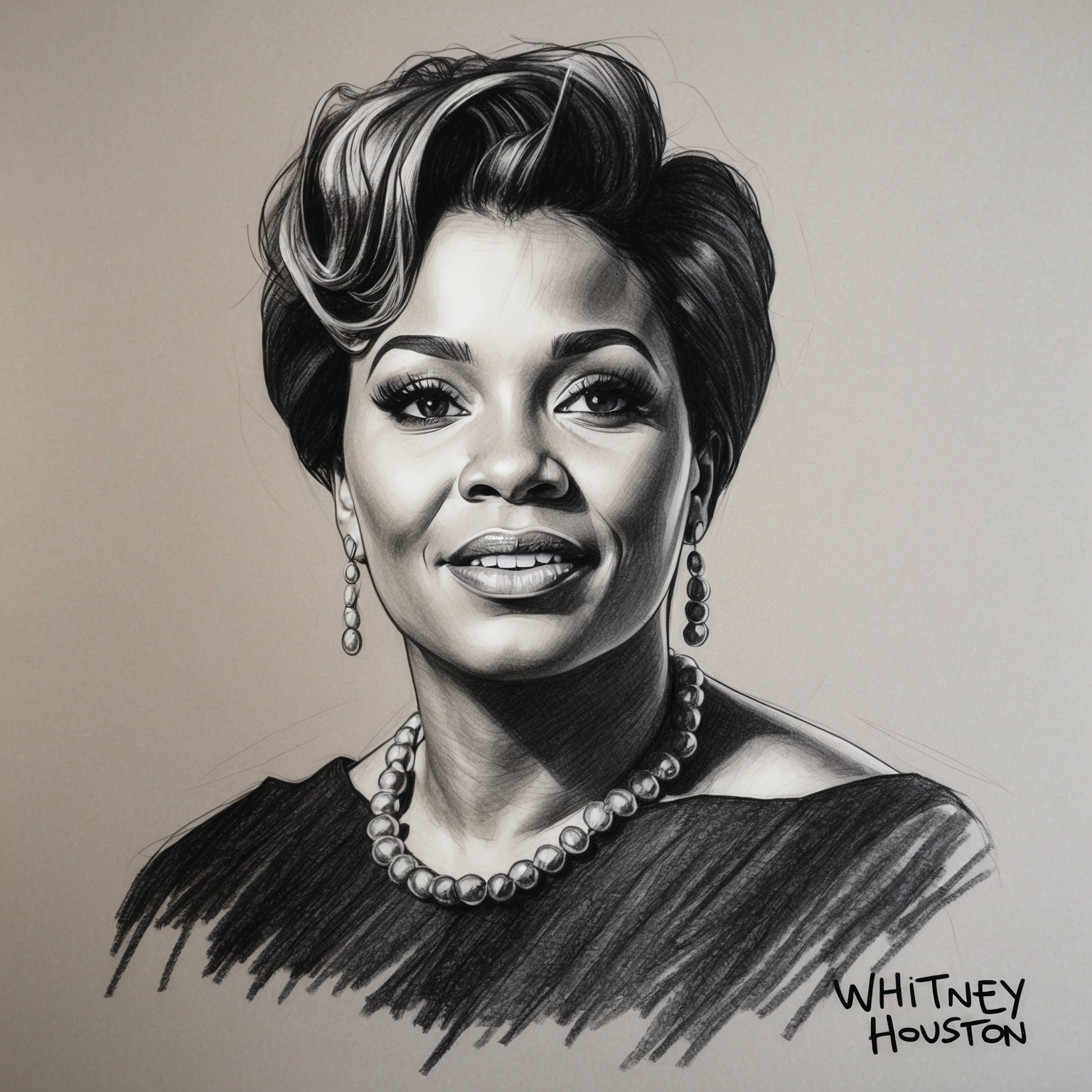
Whitney Houston, often hailed as one of the greatest vocalists of all time, left an indelible mark on the music world with her compelling rendition of “I Will Always Love You.” This song became not only a defining moment in her career but also a universal anthem of love and longing. With a voice that carried immense soul and power, Whitney redefined the boundaries of pop and R&B music, bridging the gap between genres with her unique and stirring vocal performances. The song’s release marked a period of intense creativity and widespread acclaim for Whitney, catapulting her into a league of her own in the music industry.
Born into a family rich with musical influence, Whitney’s early life was steeped in gospel sounds, setting a strong foundation for her future in music. As the daughter of gospel singer Cissy Houston and cousin of superstar Dionne Warwick, Whitney’s exposure to music was both organic and prodigious. She was discovered in the early 1980s by Clive Davis of Arista Records, who played an integral role in shaping her career. Whitney’s self-titled debut album released in 1985, quickly established her as a formidable force in music, earning widespread critical acclaim and commercial success.
The song “I Will Always Love You” was released during a high point in Whitney’s career, as part of the soundtrack for the film ‘The Bodyguard,’ in which she also starred. Her collaboration with producer David Foster for the soundtrack was a testament to her versatility and creative prowess. The song was originally penned by Dolly Parton, but Whitney’s powerful and emotional interpretation made it uniquely her own, bringing it to the forefront of popular music culture. It resonated deeply with audiences across the globe, leading to it becoming one of the best-selling singles of all time and cementing Whitney Houston’s legacy as a music icon.
The Genius Behind the Notes: Dolly Parton
Explore the remarkable journey of Dolly Parton, the composer behind ‘I Will Always Love You,’ and her enduring impact on the world of music.

Dolly Parton, an American icon renowned for her profound influence in country music, is the brilliant composer behind the song “I Will Always Love You.” Born on January 19, 1946, in Sevier County, Tennessee, Parton’s musical talents surfaced early, leading her to Nashville immediately after high school. Her career quickly blossomed, solidifying her as a formidable force in the music industry with numerous hits. Parton’s songwriting prowess, characterized by her ability to convey deep emotions and relatable narratives, is evident in this critically acclaimed composition.
Parton’s musical style traverses the realms of country, folk, and pop, marked by a blend of heartfelt lyrics and catchy melodies. Her influences span a wide range, from Appalachian folk music to the works of country legends like Hank Williams. This diverse palate has allowed her to craft poignant stories through her songs, captivating audiences worldwide. Her writing for “I Will Always Love You” exemplifies her ability to fuse simplicity with emotional depth, creating a timeless piece resonating across generations.
The song “I Will Always Love You” was first recorded by Parton in 1973 and became a significant hit on the country charts. Her collaboration with Whitney Houston in the early 1990s led to the song’s magnificent transformation into an international pop ballad. Houston’s powerful rendition of Parton’s composition introduced it to a broader audience, further cementing its place in music history. Parton’s distinct writing style, combined with Houston’s vocal prowess, created a synergy that propelled the song into iconic status.
Honors and Tributes: A Celebrated Masterpiece
Discover the song’s winning streak, notable covers by renowned artists, and the cultural impact of Whitney Houston’s “I Will Always Love You”, across movies, TV, and beyond.

“I Will Always Love You”, famously performed by Whitney Houston, stands as one of the most celebrated songs in music history, amassing a treasure trove of awards and earning critical acclaim worldwide. Upon its release in 1992, Houston’s rendition received extensive recognition. It was nominated for and won the coveted **Grammy Award for Record of the Year** and **Best Female Pop Vocal Performance** in 1994. These honors are a testament to the profound impact and emotional depth that Whitney brought to the track.
Beyond its awards, the song has been covered by several artists, adding an ever-growing list of interpretations that pay homage to Houston’s iconic version. Notably, artists like **Dolly Parton**, who originally penned and recorded the song in 1973, revisited her own creation in a new light after Houston’s success. Other notable covers include renditions by celebrated vocalists such as **LeAnn Rimes** and **Beyoncé**, both of whom have brought their unique stylistic flavors while preserving the essence of the heartfelt classic.
In addition to its musical accolades, “I Will Always Love You” has also made its mark in popular culture, being featured prominently in movies, television shows, and even video games. One of the most renowned appearances is in the 1992 film The Bodyguard, where Whitney Houston’s portrayal of the song cemented its place in cinematic history. The reverberations of the track have been felt in various TV shows and competitions, constantly reminding audiences of its timelessness. Its inclusion in the sequence of numerous videos and gaming platforms further amplifies the song’s ubiquitous influence.
The Phenomenal Chart Journey of ‘I Will Always Love You’
Whitney Houston’s “I Will Always Love You” set new records with its chart dominance, becoming a global sensation. Released in 1992, it reigned for 14 weeks on the Billboard Hot 100 and became one of the best-selling singles worldwide. Its marketing, the accompanying movie’s success, and favorable reviews cemented its legacy in pop culture.
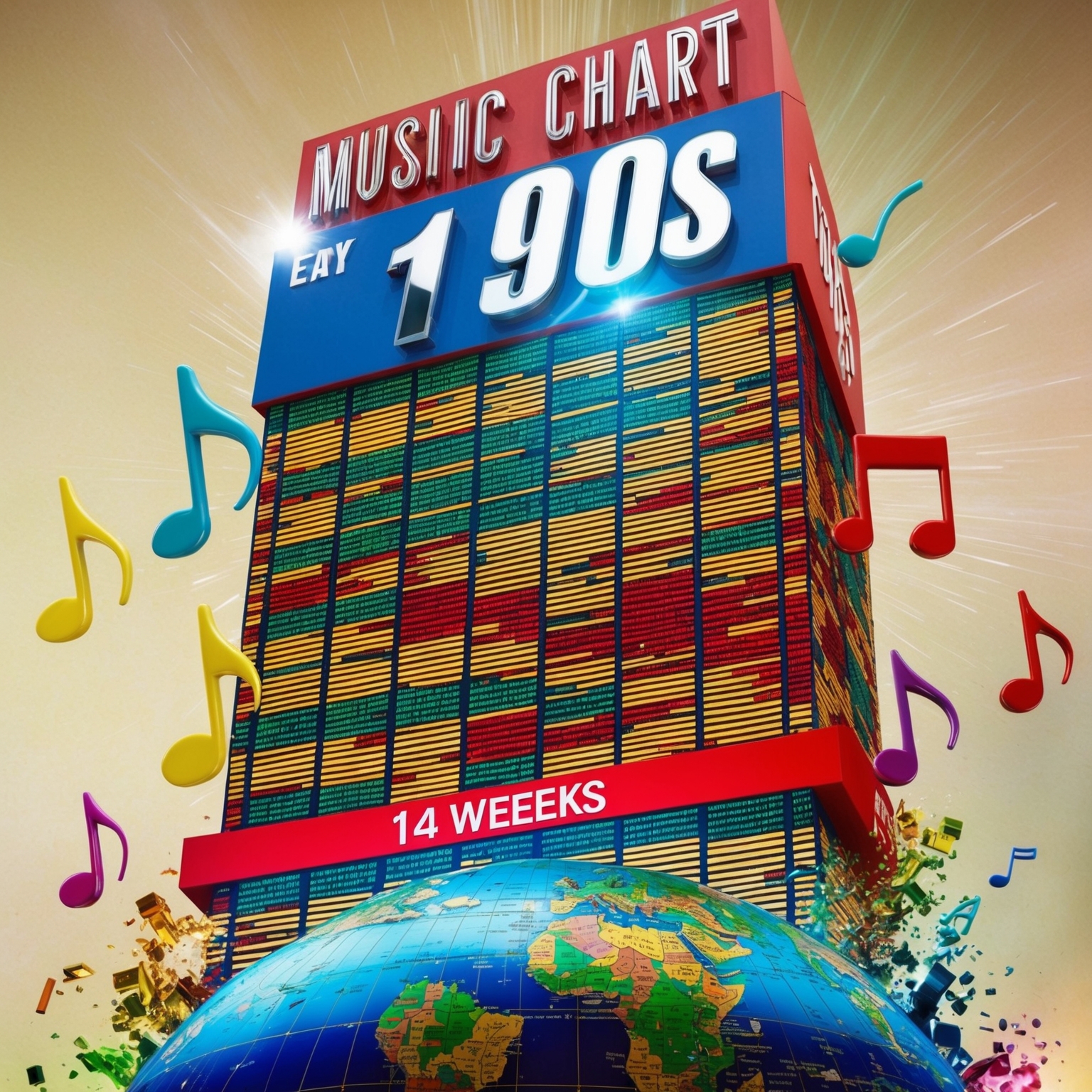
Whitney Houston’s rendition of “I Will Always Love You,” released as a single on November 3, 1992, was nothing short of a seismic event in music history. Originally appearing on the soundtrack of the movie “The Bodyguard,” the song quickly climbed the charts, debuting at number 40 on the Billboard Hot 100 before soaring to the top. It went on to hold the number one position for an astonishing 14 weeks, a record at the time for a female artist. This feat cemented Houston’s status as a pop icon and demonstrated her extraordinary vocal prowess and emotional depth.
Comparatively, “I Will Always Love You” not only dominated the Billboard Hot 100 but also achieved impressive positions on global charts. In the UK, it topped the singles chart for 10 weeks. Across Europe and other international markets, the song became synonymous with Houston’s wonderful range, making it one of the best-selling singles of all time with over 20 million copies worldwide. Its success overshadowed preceding singles from the “The Bodyguard” soundtrack and set a new standard for movie soundtracks.
The song’s enormous success was aided by strategic marketing and promotion. Arista Records ensured maximum exposure through strategic media placements, including extensive radio play and television appearances, which amplified its public reach. The film’s box office success only added fuel to the song’s popularity. Critical reception was overwhelmingly positive, with both fans and critics lauding Houston’s emotional delivery and technical excellence. Over time, “I Will Always Love You” has become more than just a successful single; it is a cultural touchstone that continues to resonate with audiences worldwide.
The Elegant Absence: Visuals that Resonate in Memory
Although “I Will Always Love You” by Whitney Houston doesn’t have an official music video, its visuals are heavily associated with her role in ‘The Bodyguard’, serving as a powerful emotional backdrop.

Whitney Houston’s rendition of “I Will Always Love You” is immortal in pop culture, but it surprisingly lacks an official music video that directly accompanies the track. Instead, the song’s imagery is closely linked with Houston’s performance in the romantic thriller, The Bodyguard. The film itself serves as a pseudo-visual narrative for the song, with Houston’s character, Rachel Marron, delivering an unforgettable, emotional portrayal that complements the song’s themes of love, longing, and farewell. The visuals from the movie, featuring Houston’s emotive expressions and powerful stage presence, have become synonymous with the song’s identity.
Within the context of the movie, the song climaxes during a poignant on-screen moment, where Rachel waves goodbye at the airport, with the song encapsulating the bittersweet essence of letting go. This critical scene in The Bodyguard helps cement the song’s place in pop culture, with Houston’s stunning vocal and visual performance driving its enduring appeal.
Over the years, fans have embraced the song in various formats, creating tribute videos and using clips from the movie to craft their own interpretations. Although not an official music video, these fan productions enhance the song’s legacy, demonstrating its profound impact and global admiration. The absence of a traditional music video has not hindered the song’s popularity; rather, it has allowed creative expressions to flourish in new, innovative ways.
Dissecting the Musical Framework of a Timeless Classic
Explore the intricate musical structure of Whitney Houston’s ‘I Will Always Love You,’ uncovering the chord progressions, tempo details, and instrumental arrangement that contribute to its timeless appeal.

Whitney Houston’s rendition of ‘I Will Always Love You’ is celebrated not only for its evocative lyrics and powerful vocal delivery but also for its intricate musical structure. Originally written by Dolly Parton, this song captures a blend of simplicity and complexity in its arrangement that enhances Whitney’s soul-stirring performance. **The song is primarily in the key of A major**, which allows for both melodic warmth and strength—a signature element that complements Houston’s vocal prowess. The chord progression follows a **classic I-V-vi-IV structure**, ensuring a resonant and emotionally gripping foundation.
At around **84 beats per minute (BPM),** the track maintains a measured tempo, allowing each note to be savored and every vocal nuance to shine through. This tempo supports the balladic nature of the song while emphasizing the lyrical sentiment of love and farewell. **Whitney’s interpretation adds dynamic vocal modulation that infuses depth** into the simple yet profound chord structure, creating a soaring melody that has since become iconic.
The harmony, centered around Houston’s powerful vocals, is accentuated by strategic use of instruments such as piano, drums, and stringed arrangements, each contributing to the song’s unique sound. **The blend of traditional string orchestration with contemporary pop elements defines the harmony.** The strings, recorded at **Ocean Way Studios** in Los Angeles under the supervision of legendary producer David Foster, bring a lush depth to the arrangement. Foster’s production expertise is apparent in the meticulous layering of Whitney’s voice with orchestral instruments, heightening the emotional climaxes scattered throughout the song.
In comparison to other songs in Whitney Houston’s discography, ‘I Will Always Love You’ marks a significant point of evolution. Unlike the dance-pop tunes of her earlier career, this ballad underscores a departure towards more mature and soulful expressions of art. Such transitions are evident in later albums, where Houston continued to explore themes of love and emotion with even richer compositions. Her progression can be seen as a journey from vibrant, upbeat tracks to those focused on emotive storytelling through complex musical arrangements. This song, therefore, serves as a bridge illustrating her artistic growth.
Recording anecdotes reveal that Whitney Houston nailed the final high notes in one take, a testament to her extraordinary vocal abilities. Producer David Foster has often recalled the fervent energy in the studio, as every musician present recognized the greatness being captured. **The studio’s ambiance, with its retro architectural acoustics, proved ideal for such dynamic recordings.**
Exploring the Emotional Depth and Literary Craft of ‘I Will Always Love You’
This section dissects the lyrical narrative, themes, and emotional power of ‘I Will Always Love You’. Emphasizing its poignant portrayal of love and farewell, the analysis highlights the song’s ability to resonate with universal human experiences through its literary finesse.
I would only be in your way
So I’ll go, but I know
I’ll think of you every step of the way
And I… will always love you, ooh
Will always love you
You, my darling you, mmm
Bittersweet memories
That is all I’m taking with me
So, goodbye
Please, don’t cry
We both know I’m not what you, you need
And I… will always love you, ooh
Will always love you
You, my darling you, mmm
 Lyrical Themes and Messages: At its core, ‘I Will Always Love You’ is a heartfelt farewell song infused with themes of love, letting go, and enduring affection. Whitney Houston’s rendition of this song, originally penned by Dolly Parton, illuminates personal themes of both loss and appreciation. The lyrics resonate deeply because they embody a bittersweet acknowledgment of love’s complexities. The listener is pulled into a world where leaving doesn’t negate the love that remains, tapping into universal emotions of nostalgia and acceptance.
Lyrical Themes and Messages: At its core, ‘I Will Always Love You’ is a heartfelt farewell song infused with themes of love, letting go, and enduring affection. Whitney Houston’s rendition of this song, originally penned by Dolly Parton, illuminates personal themes of both loss and appreciation. The lyrics resonate deeply because they embody a bittersweet acknowledgment of love’s complexities. The listener is pulled into a world where leaving doesn’t negate the love that remains, tapping into universal emotions of nostalgia and acceptance.
Narrative and Storytelling: The song is delivered from a first-person perspective, enhancing the listener’s connection to the narrative. The lyrics tell a story of parting, balancing the sadness of goodbye with the warmth of cherished memories. This narrative style allows the audience to step into the shoes of the narrator, feeling the poignant blend of sweet and sorrowful emotions. The absence of a detailed backstory further broadens the song’s universality, enabling a wide range of listeners to imprint their personal experiences onto the song.
Use of Literary Devices and Emotional Impact: The song makes strategic use of repetition, particularly in the chorus, which reinforces the enduring nature of the narrator’s love. The potent use of simple yet evocative language breathes life into the emotions conveyed. The word ‘bittersweet’ itself embodies a metaphorical richness, encapsulating a complex emotional state with a single word. Despite its seeming simplicity, the song uses rich alliteration to drive home its emotional landscape, evoking tears and memory through its lyrical craftsmanship.
As these emotional cascades unfold, listeners are often moved to tears, connecting with the universal themes presented. The understated yet powerful lyrical approach ensures that the emotional resonance is palpable, contributing to the song’s lasting legacy and success.
Did you know? Whitney’s ‘I Will Always Love You’ spent 14 weeks at #1 on Billboard, making it one of the longest runs for a female artist! ?? #WhitneyHouston #FunFact #MusicLegend tinyurl.com/4wbuswfr
Click to Tweet

